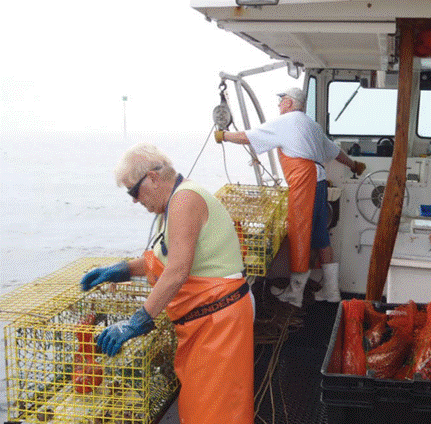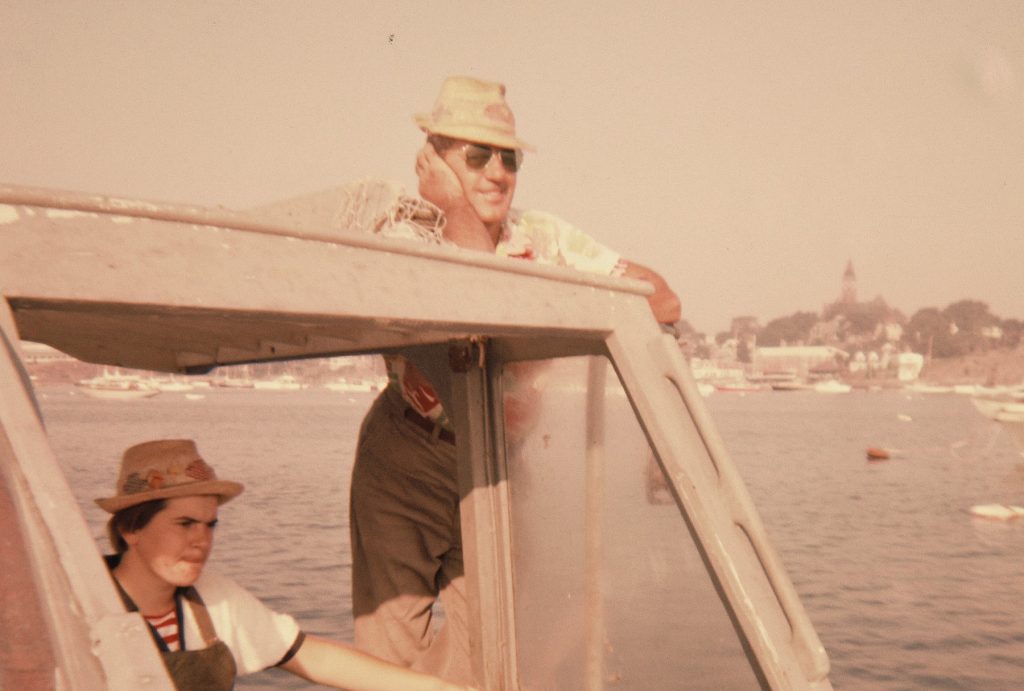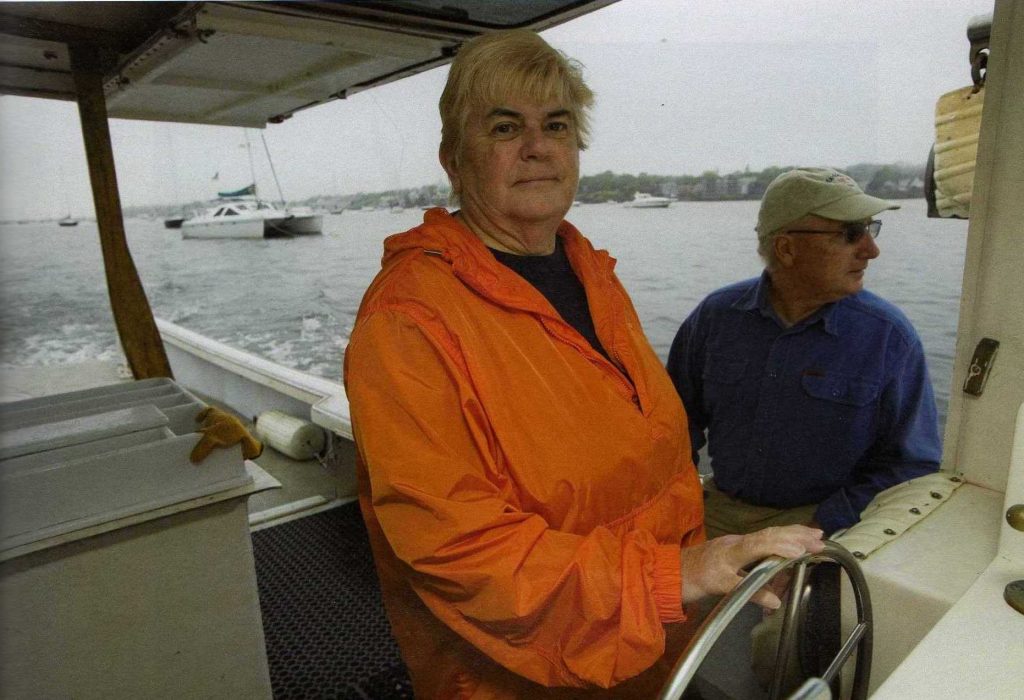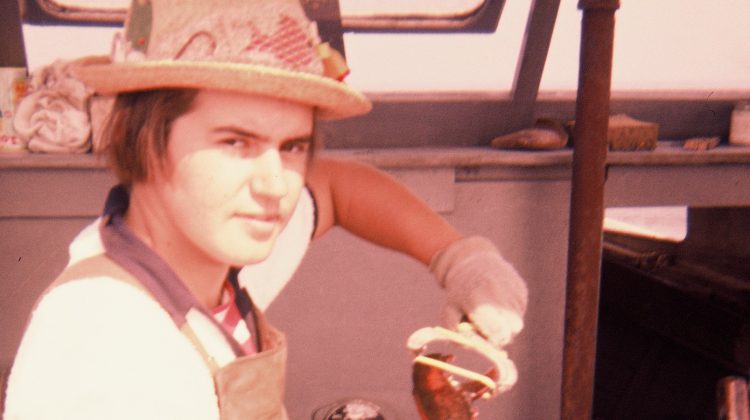MARBLEHEAD — At 81, Susan Michaud is a lifelong lobsterman, born into a family deeply rooted in the trade.
“My father had three girls, and I happened to be the middle child, so I became the son,” she said.
Michaud first realized she was entering a male-dominated field when she was about 10 years old and won a father-son fishing contest hosted by The Boston Globe after catching a “very large cunner.”
“There was a fishing rod and reel that went with (winning), and you were supposed to go into Boston and receive it. Well, I was a girl,” she said. “They couldn’t not give (the prizes) to me because I had the biggest fish, so they said, ‘OK, how about we change your name to ‘George?’”
The prize was ultimately awarded to George Woodbury, erasing Michaud’s first name while still using her maiden name.
“I didn’t go into Boston. I didn’t go and collect it,” she said. “But I did get the fishing rod, which I still have!”

Becoming a Lobsterman
When Michaud started high school at 14, her father found a unique way to support her financially — by putting her to work. He made it clear he wouldn’t be giving her any spending money, but he did provide her a 16-foot wooden Ainsbury skiff, 50 traps, bait and a crate.
He told her he would sell the lobsters she caught and give her the money. Michaud had already joined the Atlantic Lobstermen’s Co-Operative, which allowed her to sell them directly.
“For four years, I went lobstering with my 50 traps. It was fantastic,” she said. “I saw a girlfriend the other day, and she said, ‘You know, you were the only one in high school who had money. You were the only one who had their own car.’”
Michaud joked that she had limits on how far she was allowed to drive, but she remains grateful for all the time with her father on the water.
“He treated me like he would if I was a guy — not all fathers do that,” she said. “I love lobstering, I really do. It’s in my blood.”
Breaking Barriers
Michaud applauded Essex North Shore Agricultural & Technical School, formerly known as “the vocational school,” for providing opportunities for both men and women to learn trades such as carpentry and plumbing.

“It doesn’t matter whether you’re male or female when you go to that school,” she said. “Nowadays, I think we’ve broken the ice that we can just do what the guys have done in the past. I always felt that it was important.
She instilled the same mentality in her children.
“My girls all can do things that (are typically done by men). One of my daughters fixed the roof on her little gazebo one day last year with a bunch of girls. (My daughters) do all the things that I did. It gets passed down. My husband says, ‘I don’t hold my kids back. I just let them grow and do their thing.’”
Michaud raised eight children — four boys and four girls.
Beyond her seven decades of lobstering, she was also a delegate for the Massachusetts Lobstermen’s Association — and the first woman to join its board, where she served for about six years.
Over the years, some have referred to her as a “lobster woman,” but she disagrees with the term.
“No, it’s a man’s industry, and I’m a man. It’s called ‘lobsterman’ like ‘mailman,” she said.

Still in the Industry
About five years ago, when Michaud was in her mid-70s, Hooper Goodwin asked if she would consider selling her boat. She agreed, but with one condition: they would continue running it together.
“I’m still in the industry, and I’ve been in it off and on since I was 14 — probably even before that because I worked on my father’s lobster boat,” she said. “I worked on his lobster boat probably from the time I was able to stand up and walk, so I’ve been in the industry.
“It’s not like I just go out and get on the boat. I do the trap work. I’ll stack the traps on the boat. We have a big trailer, one of the square ones that landscapers use. I’ll stack 40 traps on that and 10 in the truck. We take 50 down the dock at a time.”
Michaud said the current limit is 800 traps per boat, a number she no longer tries to meet.
“But that’s only because my husband and I are 80, and we have other things that we’re doing also to make money,” she said.
“I think it’s good for people to work or volunteer or do something,” she added. “I think when you start sitting in that rocking chair, you kind of slow down a little too much, so I hope I don’t have to do that. I hope there’s always something for me to do.”

